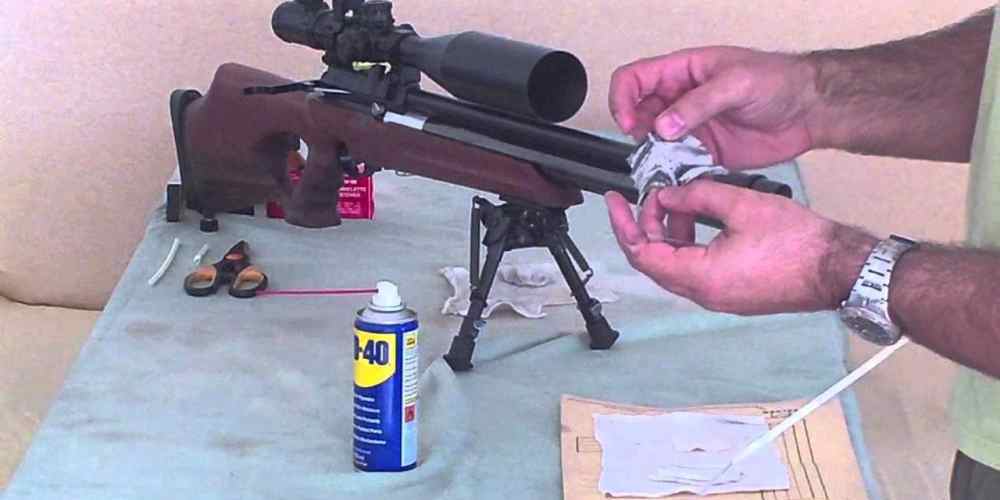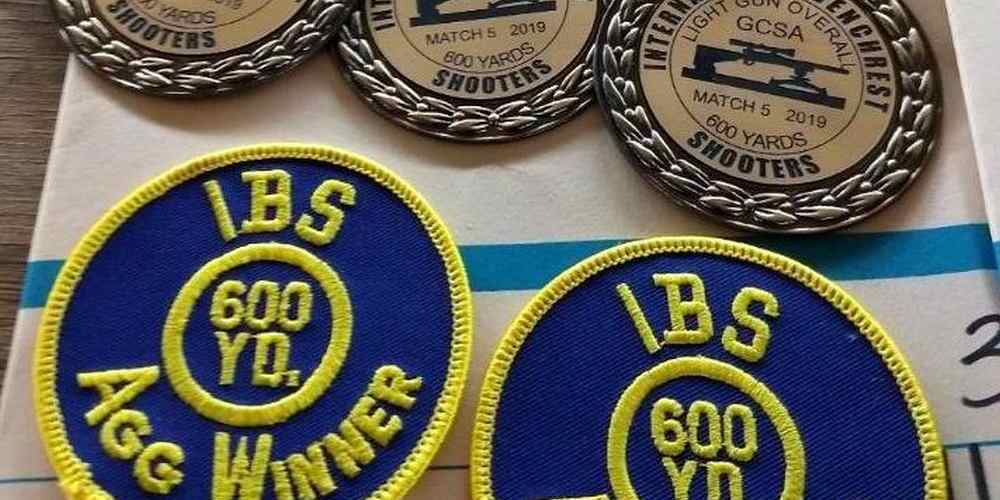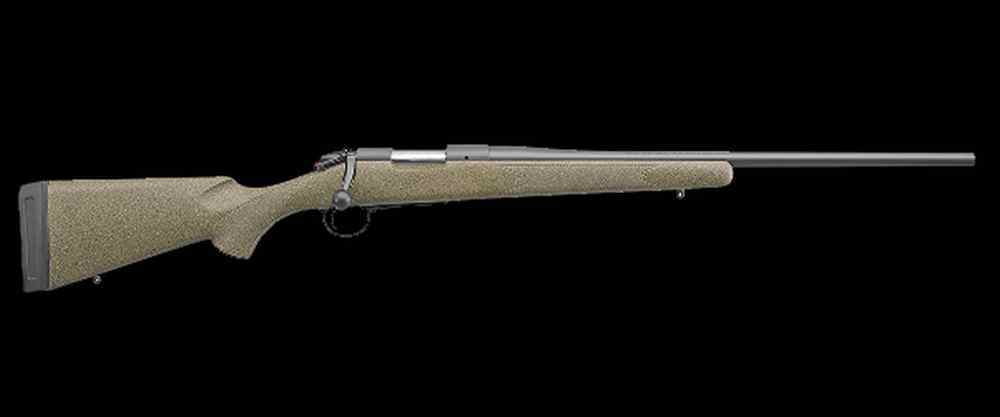“Barrel aging: enhancing precision one shot at a time.”
Impact of Barrel Aging on Rifle Accuracy
Barrel aging is a process that occurs naturally over time as a rifle is used. The effects of barrel aging on rifle accuracy can be significant, as the wear and tear on the barrel can impact the performance of the rifle. In this article, we will explore the various ways in which barrel aging can affect rifle accuracy and what shooters can do to mitigate these effects.
One of the primary ways in which barrel aging can impact rifle accuracy is through the erosion of the rifling in the barrel. Rifling is the spiral grooves cut into the barrel that help stabilize the bullet as it travels down the barrel. Over time, these grooves can wear down, leading to decreased accuracy. This erosion can be exacerbated by factors such as high-velocity ammunition and improper cleaning techniques.
Another way in which barrel aging can affect rifle accuracy is through the development of fouling in the barrel. Fouling is the residue left behind by the combustion of gunpowder, and it can build up over time, affecting the consistency of the bullet’s trajectory. This can lead to decreased accuracy and increased barrel wear. Regular cleaning of the barrel can help mitigate the effects of fouling and maintain accuracy.
In addition to rifling erosion and fouling, barrel aging can also lead to changes in barrel harmonics. Barrel harmonics refer to the vibrations that occur in the barrel when a shot is fired. These vibrations can affect the trajectory of the bullet and ultimately impact accuracy. As a barrel ages, these harmonics can change, leading to inconsistencies in shot placement. Shooters can mitigate this effect by using a consistent shooting technique and monitoring their rifle’s performance over time.
It is important for shooters to be aware of the effects of barrel aging on rifle accuracy and take steps to maintain their rifles accordingly. Regular cleaning and maintenance of the barrel can help prevent the buildup of fouling and prolong the life of the rifling. Shooters should also be mindful of the types of ammunition they use, as high-velocity rounds can accelerate the wear and tear on the barrel.
In conclusion, barrel aging can have a significant impact on rifle accuracy. The erosion of rifling, buildup of fouling, and changes in barrel harmonics can all contribute to decreased accuracy over time. By understanding these effects and taking proactive measures to maintain their rifles, shooters can ensure that their rifles perform at their best for years to come. Remember, a well-maintained barrel is key to achieving consistent and accurate shot placement.
Benefits of Barrel Aging for Rifle Performance
Barrel aging is a process that involves storing a rifle barrel for an extended period of time before it is used for shooting. This process has been found to have several benefits for rifle performance, particularly in terms of accuracy. In this article, we will explore the effects of barrel aging on rifle accuracy and how it can improve the overall performance of a rifle.
One of the main benefits of barrel aging is that it allows the barrel to settle and stabilize over time. When a rifle barrel is first manufactured, it may have imperfections or inconsistencies in the metal that can affect the accuracy of the rifle. By allowing the barrel to age, these imperfections can be smoothed out and the metal can settle into a more consistent state. This can result in improved accuracy when shooting, as the barrel is able to deliver more consistent and precise shots.

Another benefit of barrel aging is that it can help to reduce the effects of barrel fouling. Barrel fouling occurs when residue from gunpowder and bullets builds up inside the barrel, causing the rifle to become less accurate over time. By aging the barrel, this fouling can be reduced as the metal is able to naturally clean itself over time. This can result in a rifle that is able to maintain its accuracy for longer periods of time between cleanings.
In addition to improving accuracy, barrel aging can also help to increase the overall lifespan of a rifle barrel. By allowing the barrel to age and settle, it can help to reduce the amount of wear and tear that the barrel experiences during shooting. This can result in a rifle that is able to maintain its accuracy and performance for longer periods of time, ultimately saving the shooter time and money on replacing worn-out barrels.
Overall, barrel aging can have a significant impact on rifle accuracy and performance. By allowing the barrel to settle and stabilize over time, it can help to improve the consistency and precision of shots. Additionally, barrel aging can help to reduce the effects of barrel fouling and increase the lifespan of a rifle barrel. For shooters looking to improve their accuracy and performance, barrel aging is a process that is definitely worth considering.
In conclusion, barrel aging can have a number of benefits for rifle performance, particularly in terms of accuracy. By allowing the barrel to settle and stabilize over time, shooters can experience improved consistency and precision in their shots. Additionally, barrel aging can help to reduce the effects of barrel fouling and increase the lifespan of a rifle barrel. For shooters looking to improve their accuracy and performance, barrel aging is a process that should not be overlooked.
Factors Affecting Rifle Accuracy After Barrel Aging
Barrel aging is a process that can have a significant impact on the accuracy of a rifle. As a rifle barrel ages, it undergoes changes that can affect its performance in various ways. Understanding these effects is crucial for shooters who want to maintain or improve their rifle’s accuracy over time.
One of the primary factors that can influence rifle accuracy after barrel aging is the wear and tear that occurs on the rifling. Rifling is the spiral grooves inside the barrel that impart spin to the bullet, stabilizing its flight. Over time, these grooves can become worn down, which can lead to decreased accuracy. This is because the bullet may not spin as consistently or as quickly as it should, resulting in less predictable flight paths.
Another factor that can affect rifle accuracy after barrel aging is the erosion of the barrel’s bore. As a rifle is fired, hot gases and particles from the burning gunpowder can erode the metal of the barrel. This erosion can cause the bore to become rough or uneven, which can negatively impact the bullet’s trajectory. A rough bore can cause the bullet to lose velocity or stability as it travels down the barrel, leading to decreased accuracy.
In addition to wear and tear on the rifling and bore, barrel aging can also affect the barrel’s harmonics. Barrel harmonics refer to the vibrations that occur in the barrel when a shot is fired. These vibrations can influence the bullet’s flight path, with certain harmonics leading to more consistent and accurate shots. As a barrel ages, its harmonics can change, potentially affecting the rifle’s accuracy. Shooters may need to adjust their shooting technique or ammunition to compensate for these changes.
Furthermore, barrel aging can also impact the barrel’s heat dissipation properties. As a barrel is fired, it heats up due to the friction and pressure of the expanding gases. A hot barrel can affect the bullet’s velocity and stability, leading to decreased accuracy. Over time, a barrel may lose its ability to dissipate heat efficiently, resulting in more significant temperature fluctuations during shooting sessions. Shooters may need to take extra care to manage barrel heat to maintain accuracy.
Despite these potential challenges, barrel aging can also have some positive effects on rifle accuracy. For example, some shooters believe that a well-aged barrel can develop a smoother bore surface, which can lead to better bullet consistency and improved accuracy. Additionally, a seasoned barrel may have more stable harmonics, resulting in more predictable shot placement. Shooters who take the time to properly care for and maintain their barrels may find that aging can actually enhance their rifle’s performance.
In conclusion, barrel aging can have a significant impact on rifle accuracy. Factors such as wear and tear on the rifling and bore, changes in barrel harmonics, and alterations in heat dissipation properties can all influence a rifle’s performance over time. Shooters should be aware of these effects and take steps to mitigate any negative impacts on accuracy. With proper care and maintenance, a well-aged barrel can continue to deliver consistent and precise shots for years to come.
Comparison of Accuracy Before and After Barrel Aging
Barrel aging is a process that can have a significant impact on the accuracy of a rifle. Many shooters are curious about how this process affects their weapon, and whether it is worth the time and effort. In this article, we will explore the effects of barrel aging on rifle accuracy, specifically comparing accuracy before and after the aging process.
Before we delve into the comparison, it is important to understand what barrel aging actually entails. Barrel aging is the process of allowing a rifle barrel to sit for an extended period of time, typically several months to a year, in order to allow the metal to settle and stabilize. This process is believed to improve the consistency and precision of the barrel, ultimately leading to better accuracy.
When comparing accuracy before and after barrel aging, it is important to consider a few key factors. First and foremost, the quality of the barrel itself plays a significant role in determining accuracy. A high-quality barrel will generally have tighter tolerances and better machining, which can lead to improved accuracy even without barrel aging.
Additionally, the type of ammunition used can also impact accuracy. Different types of ammunition will perform differently in a barrel, so it is important to use the same type of ammunition when comparing accuracy before and after barrel aging. This will help ensure that any changes in accuracy are due to the aging process itself, rather than differences in ammunition.
In terms of accuracy before barrel aging, shooters may notice some variability in their rifle’s performance. Factors such as barrel fouling, temperature, and humidity can all affect accuracy to some degree. However, with a well-maintained barrel and consistent shooting conditions, shooters can generally expect good accuracy from their rifle.
After barrel aging, shooters may notice improvements in accuracy, particularly in terms of consistency. The settling and stabilization of the metal in the barrel can lead to tighter groupings and more predictable shot placement. This can be especially beneficial for competitive shooters or hunters who require precise accuracy in their shooting.
It is important to note that the effects of barrel aging on rifle accuracy can vary depending on the individual rifle and shooter. Some rifles may see significant improvements in accuracy after aging, while others may see only minor changes. Additionally, shooters with less experience or skill may not notice as much of a difference in accuracy before and after barrel aging.
In conclusion, barrel aging can have a positive impact on rifle accuracy, particularly in terms of consistency and precision. By allowing the metal in the barrel to settle and stabilize, shooters may notice improvements in their rifle’s performance. While the effects of barrel aging can vary from rifle to rifle, it is generally worth considering for shooters looking to improve their accuracy.
Tips for Maintaining Accuracy in Barrel-Aged Rifles
Barrel aging is a common practice among gun enthusiasts who want to improve the accuracy of their rifles. By allowing the barrel to age, the metal undergoes changes that can enhance the performance of the firearm. However, it is important to understand the effects of barrel aging on rifle accuracy in order to properly maintain and care for your weapon.
One of the key effects of barrel aging on rifle accuracy is the development of a patina on the metal surface. This patina is a thin layer of oxidation that forms over time as the barrel is exposed to air and moisture. While some gun owners may see this as a sign of wear and tear, the patina actually serves to protect the metal from further corrosion and can improve the overall performance of the rifle.
In addition to the development of a patina, barrel aging can also lead to changes in the rifling of the barrel. Rifling refers to the grooves that are cut into the inside of the barrel to help stabilize the bullet as it travels down the barrel. Over time, these grooves can wear down or become distorted, which can affect the accuracy of the rifle. By regularly inspecting and cleaning the barrel, gun owners can help prevent these issues and maintain the accuracy of their firearm.
Another effect of barrel aging on rifle accuracy is the potential for barrel fouling. Fouling refers to the buildup of residue from gunpowder and bullets inside the barrel, which can affect the trajectory of the bullet and decrease the accuracy of the rifle. By regularly cleaning the barrel and using the proper cleaning techniques, gun owners can prevent fouling and ensure that their rifle remains accurate.
To maintain the accuracy of a barrel-aged rifle, it is important to follow a few key tips. First, gun owners should regularly inspect the barrel for signs of wear and tear, such as pitting or rust. By catching these issues early, gun owners can prevent further damage to the barrel and maintain the accuracy of their firearm.
Second, gun owners should clean the barrel regularly using the proper cleaning techniques. This includes using a cleaning rod and solvent to remove fouling and residue from the barrel. By keeping the barrel clean, gun owners can prevent accuracy issues and ensure that their rifle performs at its best.
Finally, gun owners should store their barrel-aged rifles properly to prevent damage and maintain accuracy. This includes storing the rifle in a cool, dry place away from moisture and humidity. By taking these steps, gun owners can ensure that their barrel-aged rifles remain accurate and reliable for years to come.
In conclusion, barrel aging can have a significant impact on rifle accuracy. By understanding the effects of barrel aging and following these tips for maintaining accuracy in barrel-aged rifles, gun owners can ensure that their firearms perform at their best. With proper care and maintenance, barrel-aged rifles can continue to deliver accurate and reliable performance for years to come.




